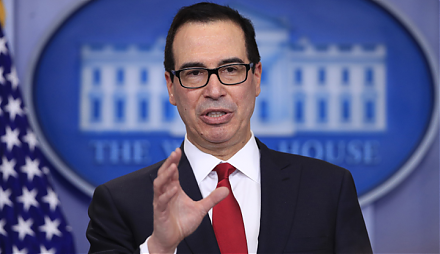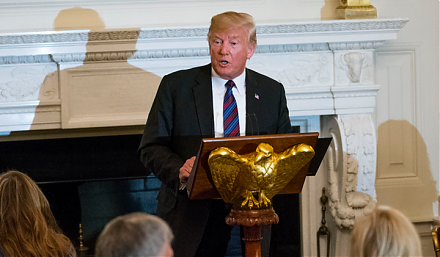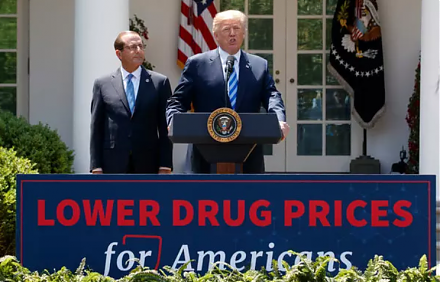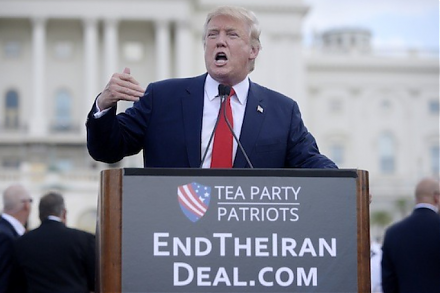

2018-05-07 07:32:00 Mon ET
technology social safety nets education infrastructure health insurance health care medical care medication vaccine social security pension deposit insurance
President Trump seeks to honor his campaign promise of lower U.S. medical costs by forcing higher big-pharma prices in foreign countries such as Canada, Britain, France, Germany, Japan, and South Korea. As of early-2018, the typical American spends more than $1,100 on prescription drugs per year.
It is true that many Americans take pills on a regular basis, but what sets the U.S. apart from most other OECD countries relates to high drug prices. President Trump now attempts to induce large pharmaceutical companies such as Merck, Johnson & Johnson, Pfizer, Amgen, and GSK etc to increase their medicine prices abroad. This strategic move would create economic incentives for these companies to cut drug prices in America. In light of the high health insurance and medical costs in America, the Trump administration either has to foster competition among biotech firms and pharmaceutical companies, or the Trump administration needs to induce them to voluntarily reduce medicine prices.
President Trump sometimes retorts with the deliberate hyperbole that drugmakers can **get away with murder** in what they charge the government for medication. As the American population enjoys longer human longevity with better medical technology, lower medicine prices seem to have become a necessary evil for big pharma.
If any of our AYA Analytica financial health memos (FHM), blog posts, ebooks, newsletters, and notifications etc, or any other form of online content curation, involves potential copyright concerns, please feel free to contact us at service@ayafintech.network so that we can remove relevant content in response to any such request within a reasonable time frame.
2017-03-03 05:39:00 Friday ET

As the biggest IPO since Alibaba in recent years, Snap Inc with its novel instant-messaging app SnapChat achieves $30 billion stock market capitalization.
2018-07-21 13:35:00 Saturday ET

President Trump supports a bipartisan bill or the Foreign Investment Risk Review Modernization Act (FIRRMA), which effectively broadens the jurisdiction of
2018-08-25 12:33:00 Saturday ET

President Trump warns Google, Facebook, and Twitter that these tech titans now tread on troublesome territory. Specifically, Trump accuses Google of rigging
2018-05-07 07:32:00 Monday ET

President Trump seeks to honor his campaign promise of lower U.S. medical costs by forcing higher big-pharma prices in foreign countries such as Canada, Bri
2018-05-06 07:30:00 Sunday ET

President Trump withdraws America from the Iran nuclear agreement and revives economic sanctions on Iran for better negotiations as western allies Britain,
2026-02-14 11:26:00 Saturday ET

Our AYA fun podcasts deep-dive into the current global trends, topics, and issues in macro finance, political economy, public policy, strategic management,